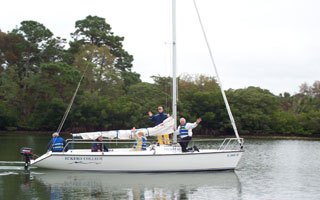Yesterday a new subscriber viewed this post that I wrote in 2012, thirteen years ago. Rereading the memory of my Aunt Carol made me smile and I thought you might smile too. Please let me know.

My aunt died recently at the age of ninety-two. Peculiar was how my mother described her sister. It was a kind word choice considering, and gave my aunt personality and style, rather than label her strange.
Born on January 13, 1920, her dad, Charles Achilles DeSalvo, named her Marie Antoinette while his wife was sedated. She was called Carol and legally changed her name once she was twenty-one.
As a twelve-year-old, I watched her layout under garments (padded bras, garter belts and silk panties) on the bed, to wear after a bath and thought she was a princess.
She wore high heel, open toe, sling back shoes lined with Kleenex tissues, as slippers; bathed with Palmolive soap, used a pumice stone to ward off foot callous, brushed her teeth with tooth powder and applied makeup sitting at a dressing table in a house coat. The final step once I zippered her newest dress was to take out the Bobbie-pins and comb through her hair. She did not dilly-dally but was fashionably late for cocktails.
Aunt Carol was frozen in time. Nothing changed for her since 1958 when she owned a green Buick. She had a Nancy Regan style, but never went to Washington.
Her hair-do the day she died was the same as the day my parents married. She never had children and did not marry until sixty. She did not wear slacks, low shoes, socks, or sneakers. Every dress she owned was individually surrounded with plastic and stored in a closet. I still can hear her response to the mention of denim, “Only cowboys wear denim,” she said with a sharp rise in her voice, clutching a tissue.
Aunt Carol loved to shop and demonstrated peculiar behavior at the checkout. She watched carefully every item rung up as though it was her first trip to Disney then waited for the cashier to ask, “Will that be cash or charge?”
Aunt Carol eventually said “Credit Card,” with a look of disdain, then opened the metal clasp on her black leather purse, and removed a zip lock bag. A wallet wrapped in Kleenex tissue secured by a blue rubber band was inside the plastic. Unwrapping, the wallet was a slow process that suspended time for everyone around her. Eventually she removed a credit card and paid.
I wonder what her life would have been as Marie Antoinette DeSalvo.
…just saying
Moringside Drive is now available a friendly review on Amazon will help to put me on the suggested list.









 I felt special, as though giving a commencement speech, and knew Joey would feel special too.
I felt special, as though giving a commencement speech, and knew Joey would feel special too.


